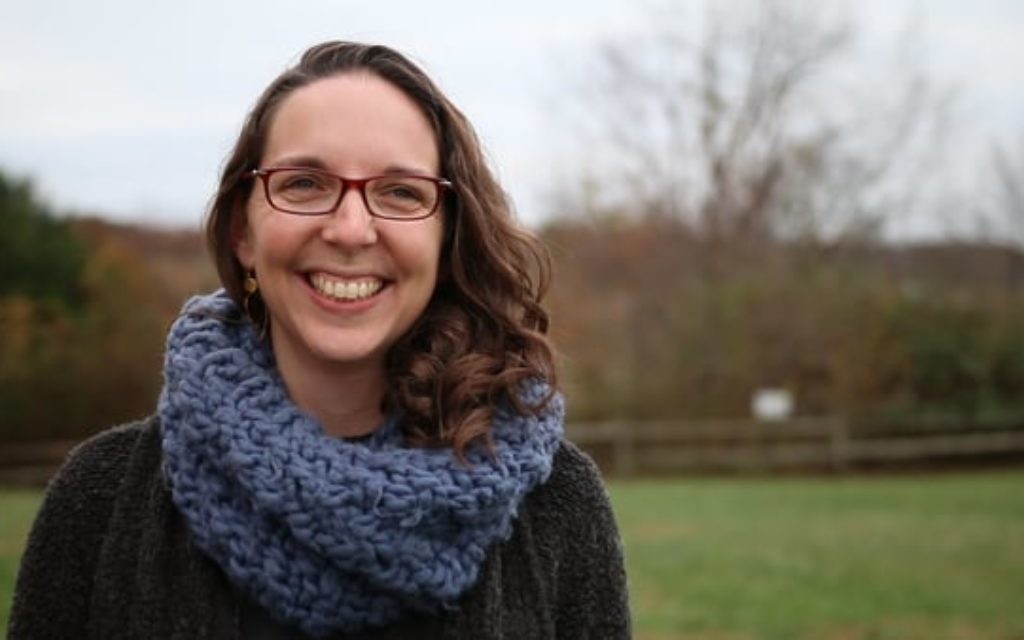Basing Judaism on Relationships, Not Transactions
The Temple's Rabbi Lydia Medwin explains the thinking behind the "Relational Judaism Handbook."
What could you imagine for your community or JCC or Federation if more people made relationships — with Judaism; between clergy, leadership and the community; among fellow community members; and even with spiritual life — the central focus of their work?
This is the essential question addressed in the new book “The Relational Judaism Handbook” (www.relationaljudaismhandbook.com), co-authored by Dr. Ron Wolfson, Rabbi Nicole Auerbach of Central Synagogue in New York, and me, Rabbi Lydia Medwin, the director of congregational engagement and outreach at The Temple.
Building off the incredible success of Wolfson’s original book, “Relational Judaism,” we have compiled a handbook of best practices and pro tips from across Jewish America. In synagogues, JCCs and Federations, as well as non-Jewish businesses and organizations, we found so many incredible examples of ways to put people before program, to make the anonymous individual feel known and seen, and to add meaning and purpose to the very existence of organizations that mean so much to so many of us.
Get The AJT Newsletter by email and never miss our top stories Free Sign Up
So much of Jewish life has the potential to be transactional; we wrote this book so you too could be inspired to work toward a Jewish community centered instead on deepened relationships that make life more meaningful.
We dedicate an entire section to the creation and maintenance of small groups. A small group is (not surprisingly) a small group of people, typically eight to 12, who gather on a regular basis and are led by a peer. They address a variety of affinities, discussion topics, issues of social justice and more, but, most of all, they become a group of people who know and care for one another in ways that long-standing minyanim and traditional chavurot understand.

By Dr. Ron Wolfson, Rabbi Nicole Auerbach and Rabbi Lydia Medwin
Kripke Institute Center for Relational Judaism, $19.99
We like to say that these small groups create an atmosphere that resembles the old show “Cheers,” a place where everybody knows your name and is glad that you came. We also call these groups “third places,” where the first place is the home and the second place is a work location.
A third place is a place to bring your most authentic self, the self that likes to cut up, the self that needs a place to relax and the self that requires nourishment if you are to be successful in the first and second places.
Science reports on the increased happiness levels and the improved mental and physical health for those intertwined in deep community. Small groups, no matter the reason for the gathering, provide that context.
This book explains how to start small groups and what is needed to ensure their success. The resulting cultural change can affect your entire organization and, more important, the lives of people in our community who desperately need connections unfiltered by technology and deeper than a Facebook post.
With a foreword by Rabbi Rick Jacobs, the president of the Union for Reform Judaism, and a preface by Rabbi Ed Feinstein, the senior rabbi of Valley Beth Shalom — as well as reviews from Rabbi Yitz and Blu Greenberg, Rabbi Sid Schwartz, Rabbi Angela Buchdahl, The Temple’s Rabbi Peter Berg, and Rabbi Sharon Brous — we authors are delighted to find support for this book across the Jewish world and believe that its application has relevance for synagogue and Jewish organizations alike.
My favorite part about putting relationships at the center of Jewish life is the incredible amount of creativity released into the Jewish world, beyond any specific movement or institution, because of the ways Jews are invited into greater ownership and guidance of their own Jewish lives. What could be more exciting?
I look forward to hearing what kind of creative, relational engagement work that you are doing (so I can share with others) or that is inspired by this book. Let’s keep the conversation going.
Rabbi Lydia Medwin is part of the clergy team at The Temple.





comments